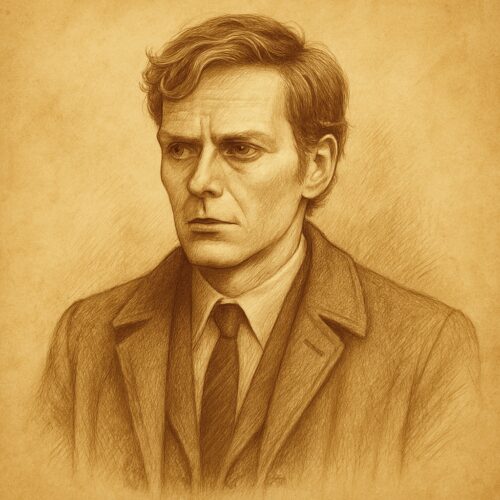7-minute read
Premise
Imagine the 1960s Oxford detective scene. The city’s misty streets, academic snobberies, and hidden secrets. That’s where Endeavour begins. For the first few episodes, I kept watching because Shaun Evans’ Morse was fascinating—sharp, introverted, and honestly a bit tragic. The show’s pacing is deliberately slow, building tension with brooding shots and iconic period music. You might think it’s just another detective show, but the layered storytelling and nostalgic vibe hooked me. It’s like revisiting Oxford through a misty, nostalgic lens. The mystery unfolds methodically, but that’s just the surface. Beneath it, Morse wrestles with loneliness and societal shifts. The tone balances melancholic nostalgia with sharp procedural twists. You keep watching because each episode slowly peels back this complex character’s layers. Plus, the soundtrack and beautiful cinematography create a mood that stays with you long after the last scene. Eventually, you’re invested in Morse’s journey from bright-eyed cop to troubled detective. It’s that mix of period drama and thoughtful mystery that makes you want to binge just one more episode.
Characters
- Shaun Evans – Young Morse, sharp-minded but emotionally guarded. Restless and often lost in thought, solving puzzles others overlook.
- Roger Allam – DI Fred Thursday, steady father figure. Wounded veteran who keeps Morse grounded while battling his own demons.
- Anton Lesser – Chief Superintendent Bright, formal, strict but fair. Motivates with his “tiger tiger” speeches—if you’re into that.
- Sean Rigby – DS Jim Strange, loyal and quietly ambitious. Climbing the ranks while trying not to step on toes.
- James Bradshaw – Dr Max DeBryn, dry-witted pathologist. Provides forensic insight and deadpan humour—sometimes both at once.
- Jack Laskey – DS Peter Jakes, the eager rookie who eventually learns the ropes and earns respect.
- Sara Vickers – Joan Thursday, idealistic and complex. Has a tense, layered relationship with Morse—because this isn’t just about police work.
- Abigail Thaw – Dorothea Frazil, principled journalist. Acts as an ethical foil and moral compass in Morse’s world.
- Caroline O’Neill – Win Thursday, calming force. Keeps her family together amidst chaos.
- Shvorne Marks – Monica Hicks, nurse with a fleeting romantic spark. A brief domestic light amidst Morse’s darkness.
Production
This series takes painstaking care. Made by Mammoth Screen for ITV—think craftsmanship in every frame. Russell Lewis writes every episode, so the tone is consistent. Filming mostly takes place in Oxford, where every arch and cobblestone looks authentic. Vintage cars and period costumes add to the charm. Interiors happen at Ealing Studios, saving headaches but maintaining quality. Barrington Pheloung’s classic Morse themes echo in your mind, making each episode an aural treat. Costume designer Charlotte Mitchell’s work shows clear shifts in fashion, reflecting cultural change. Every block of filming takes about seven weeks. Early mornings at Oxford colleges give that timeless glow to scenes, and detailed props—typewriters, Bakelite phones—keep the vibe real. Shooting around exam schedules, sound stages for quick set changes, and battling weather in medieval courtyards—all meticulous. The result? A lush, authentic period atmosphere that pulls you in and doesn’t let go.
Writing
Russell Lewis crafts episodes that blend standalone mysteries with deeper character arcs. Crosswords and classical music motifs add layers that reward careful viewers. Lewis doesn’t just cater to fans; he respects the intelligence of the audience. Morse’s romantic frustrations mirror Oxford’s societal upheavals, making him more relatable. Fred Thursday’s moral dilemmas get sharper, exposing cracks beneath his stoic exterior. Snappy dialogue, literary references, and clever foreshadowing keep viewers hooked, often replaying scenes just for the clues. The titles sometimes nod to opera, myth, or math—adding to the show’s academic swagger. Underneath the puzzles lie stories of institutional corruption, class tensions, and Morse’s relentless push against bureaucracy. All of this balances intellectual appeal with emotional depth. Morse’s mentorship with Thursday offers warmth but also stifles his independence, foreshadowing future rebellion. The layered storytelling keeps the series fresh and intriguing across nine seasons.
Influence
Endeavour breathed new life into the classic British detective genre. It attracted a younger audience, unfamiliar with the original Inspector Morse. This led to more series beyond the initial plans. International fans discovered the show through PBS Masterpiece, boosting its global reach. Oxford’s streets became tourist hotspots as fans visited filming locations. Streaming platforms made Morse lore more accessible outside Britain. Social media fans organise virtual crossword challenges and meme the iconic scenes. Some academic circles now cite Endeavour as a prime example of neo-Victorian nostalgia on TV. Pheloung’s musical motifs became instantly recognisable. Vintage fashion and classic cars saw a surge in popularity, thanks to the show’s aesthetic. Ultimately, the series proved that respectful prequels can deepen a beloved franchise and reframe its cultural importance.
Legacy
The final season aired in 2023, wrapping up Morse’s early story. The ending echoed the 2000 Inspector Morse finale, providing symmetry and emotional closure. Fans reacted with tears and praise. Rumours of spin-offs floated online, but Shaun Evans and Roger Allam politely declined. Endeavour is now regarded as a masterclass in prequel storytelling, balancing respect and innovation. The last scene mirrors Morse’s firstappearance, completing a full circle. Oxford erected plaques at key filming spots, and props are displayed in exhibitions. Universities now include the series in screenwriting classes. Its influence endures as a respectful, beautifully crafted slice of British culture. Soundtrack sales soared after streaming made it globally available. The series’ enduring reputation is proof that a carefully made prequel can enrich rather than dilute its original mythos.
If You Only Watch One Episode….
Pick episode one, “Girl,” from 2012. It introduces Morse’s character, the foggy Oxford setting, and his subtle brilliance. The episode’s pace and mood set the tone perfectly. The mystery is compelling, but it’s Morse’s inner world that hooks you. Plus, the final scene with Morse nursing a drink and reflecting is pure gold. It captures the show’s themes of loneliness and discovery, making it the ideal starting point for newcomers.
